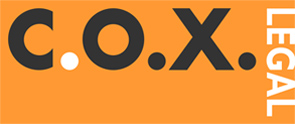Organizers often agree to cover the artists’ travel expenses. The question therefore arises as to how these travel expenses can be settled between the organizers and the artists. Two variants can be considered:
1. re-invoicing of travel expenses as a fringe benefit
The artists invoiced the organizers for the main service (performance) and travel expenses.
This re-invoicing of travel expenses constitutes an ancillary service under VAT law, which shares the fate of the main service with regard to the amount of VAT.[1] This means that the amount of VAT due on the travel expenses is based on the amount of VAT due on the main service.
Example a): Performer Fritzi from Bremen performs at a theater in Munich and receives EUR 1,000.00 plus a fee for her performance. 7 % sales tax. The fee for the performance is the main service. In addition, Fritzi has agreed that she can also bill the theater for travel expenses (rental car). Although Fritzi paid 19% VAT for the rental of the car, she can only claim 7% VAT when charging on the travel costs. The amount of VAT here is based on the main service, i.e. the amount of VAT for the artist’s performance. The amount of VAT for the artist’s performance is calculated in accordance with § 12 para. 2 no. 7 letter a UStG to 7 %.
CALCULATION EXAMPLE:
- Performance fee EUR 1,000.00
- Rental car costs EUR 200.00
- Net amount: EUR 1,200.00
Plus. 7 % sales tax
Nothing else applies if the amount of VAT on the main service is 19%.
Example b): Director Charly from Bremen performs at a theater in Munich and receives EUR 1,000.00 plus a fee for this. 19 % sales tax. Charly has also agreed that he can charge his hotel costs to the theater. Although Charly only paid 7% VAT on the hotel costs, he has to charge and pay 19% VAT when charging on the hotel costs. The amount of VAT in this case is based on the main service, i.e. the amount of VAT for the management service. The VAT for a director’s service is usually subject to standard taxation, i.e. 19%.[2] Input VAT is only deducted at 7% instead of 19%.
Nothing else applies in the event that the main service is exempt from VAT.
2. recharging the costs as a transitory item
By way of exception, the re-invoicing of travel expenses is not subject to VAT if it is a so-called transitory item in accordance with § 10 para. 1 sentence 6 UStG. This is the case if the contract for the travel costs (e.g. the hotel) is concluded directly between the venue and the hotel operator. The hotel invoice should therefore also state the name of the venue and not the name of the artist.
3. foreign travel: foreign sales tax
In the event that the travel costs for an event abroad are not covered by the foreign organizer, the foreign VAT invoiced (e.g. for hotel accommodation in Holland) cannot be claimed from the German tax office. In order to recover input tax from abroad, so-called input tax refund applications can be submitted (for EU member states to the Federal Central Tax Office; http://www.bzst.de/DE/Steuern_International/Vorsteuerverguetung/01_Inlaendische_Unternehmer/Hilfsmittel/hilfsmittel_node.html.
[1] Haufe, Kommentar, Weiterberechnung der Reisekosten an den Auftraggeber, cf. https://www. haufe.de/unternehmensfuehrung/profirma-professional/reisekosten-ab-2014-5-weiterberechnung-der-reisekosten-an-einen-auftraggeber_idesk_PI11444_HI6521874.html. Status: 25.08.2017.
[2 ] See the ruling of the Berlin Brandenburg tax court dated June 22, 2016 – 7 K 7343/14 for information on the extent to which government services can also be taxed at 7%.
